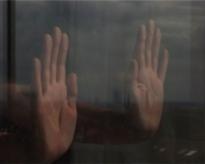REPÉRAGE
Why not remake 'Zabriskie Point'? Michelangelo Antonioni's early seventies film was about contemporary America seen from a distance. ‘Moi, j’ai regardé l’Amérique telle qu’elle m’est apparue, sans savoir ce qu’elle est,’ the Italian director stated, philosophically downplaying his thorough research into late sixties U.S. turmoil. Today, 36 years on, things have changed. The key demands of the protest generation - freedom, creativity, flexibility - have become the buzz words of neo-liberal management and performance culture. Still, these are also times of war, and of protest against war. How can we look at Antonioni's detached portrayal of the American inner and outer landscape without feeling astonishment? Life, love, resistance seemed so much simpler then. Of course, they were not. Before committing one single line to a page of the script, the remaking of 'Zabriskie Point' would mean: charting the difference between 'their' sixties and 'our' zeroes. Upgrading the soundtrack or downplaying the hippie aesthetic just won't do. Hence 'repérage': gathering one's bearings, positioning one's self - or, in the lingua franca of cinema, scouting for film locations. The terrain to be explored here is essentially a mental one. This series of interviews share some thoughts on Antonioni, the road-movie genre, modes of resistance, the formation of contemporary subjectivities, of contemporary life (and death).

- Formaat DIGITAL FILE(DIGITAL FILE)
- Kleursysteem PAL
- Kleur col.
- Jaar 2006
- Duur 00:25:00
- Taalinfo
Gesproken: French, Dutch/ Flemish, English UK
-
Kunstenaars